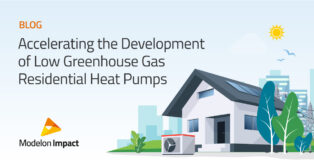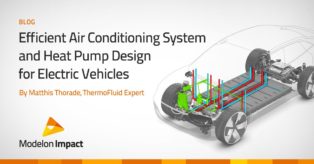Platform Tour: Modelon Impact for Residential Heat Pump Design
Modelon Impact is the ultimate system simulation and modeling platform for the design, simulation, and optimization of industrial systems. With validated components, a user-friendly interface, and the ability to extract insightful simulation results, Modelon Impact empowers engineers to make informed decisions about the design and operation of heat pump systems.
In this video, Adhemar Araoz, HVAC & Refrigeration Industry Expert at Modelon, demonstrates how Modelon Impact can be used to:
- Design a heat pump system
- Select the right refrigerants for a new or existing heat pump system
- Analyze heat pump simulation results to predict energy and cost efficiency
Modelon Impact Capabilities for Residential Heat Pump Applications
Robust modeling libraries and Medium models
Modelon Impact comes equipped with multiple modeling libraries which are filled with pre-configured and customizable component test benches, system templates, and validated components such as heat exchangers, compressors, and expansion valves. Modelon Impact also supports the import of pre-existing models so users can start building right where they left off. Additionally, access Medium model packages generated by experts using RefProp and CoolProp libraries.
Ability to size and integrate systems and subsystems
Modelon Impact allows users to iterate upon system models for sizing applications. Quickly vary model fidelity and run models to analyze performance output and for determining appropriate design specifications. Additionally, Modelon Impact makes it easy to combine sub-systems into a single model. This helps engineering teams leverage their in-house expertise for crucial system aspects and create a more true-to-life virtual model of their technology.
Experiment set-up for better decision-making
Modelon Impact users can quickly set up experiments by selecting from and adjusting a variety of pre-defined configurations. From here, users can fine-tune their models to achieve optimal heat pump system behavior. This helps engineers answer specific design questions about the performance of specific components and to the full system. In this demo, we show how the COP can be optimized for a low-fidelity heat pump system model.


